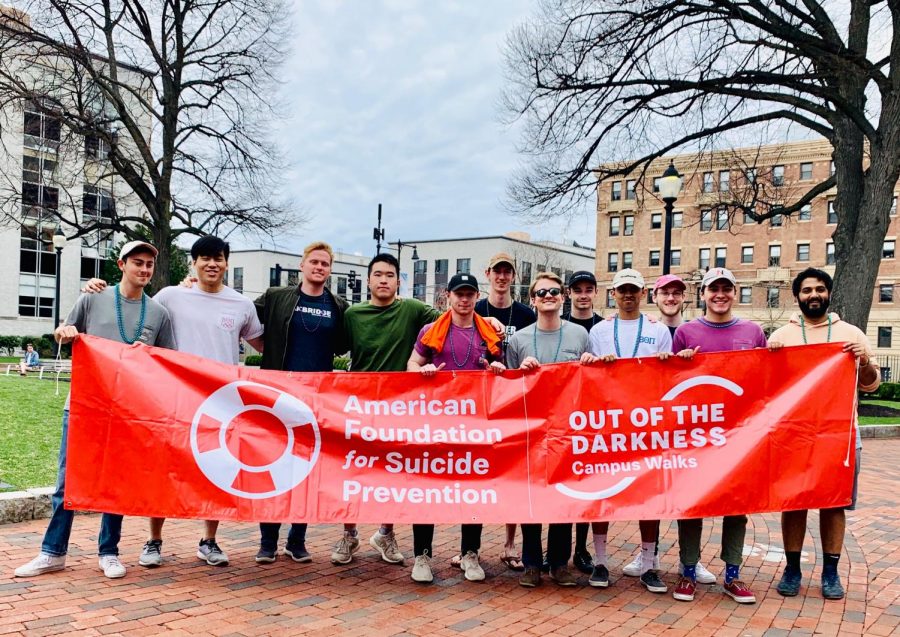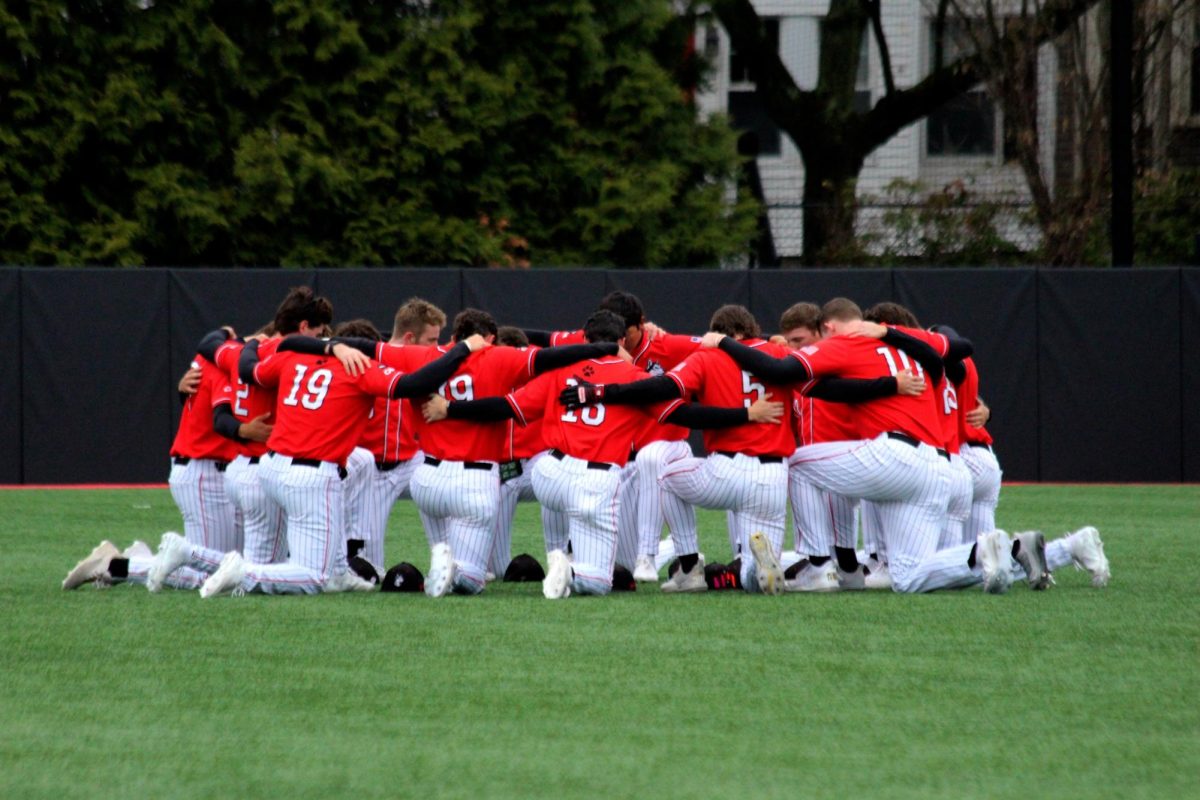Fraternity members walk in support of mental health awareness
Beta Theta Pi brothers walked to bring awareness to mental health issues at the Out of the Darkness Walk.
April 16, 2019
Behind the SMILE — a suicide and mental illness education student group at Northeastern — led students and faculty in the Out of the Darkness Walk Sunday.
The walk drew a diverse crowd of supporters. Participants wore different colored beads around their necks to show their personal connection to the cause, wearing green for a personal struggle, purple for a loss of a relative or friend and gold for a loss of a parent.
Brothers of the Beta Theta Pi fraternity were one of the largest groups that attended the walk.
According to Northeastern’s undergraduate admissions statistics, less than 10 percent of students participate in Greek life. Despite the small population, Northeastern Greek life has not escaped controversy. In 2006, the school revoked a different fraternity chapter based on allegations of sexual harassment and hazing.
By participating in events like the Out of the Darkness Walk, members of Beta Theta Pi said they hoped to embody their true values and correct the perception that fraternity culture revolves around partying.
“I think it’s easy to stereotype. People let the actions of a few define the actions of many,” said Alex Renaud, Beta Theta Pi brother and a first-year environmental engineering major. “Just having a few fraternities that only party and don’t focus on the brotherhood enforces the stereotype that all fraternities are just focused on heavy drinking.”
Samantha Li, a second-year biology and English major and the treasurer of Behind the SMILE, greeted supporters in Krentzman Quad and gave a speech about her lifelong battle with mental health.
Li said the transition from high school to college is “something everyone goes through so they assume that it is easy to get through it. The reality is that it is something that many people struggle with and need support to get through.”
Like Li, members of Beta Theta Pi shared their own struggles transitioning to college. Many of them said the brotherhood provided them with an invaluable support system.
The brothers spoke of the less-frequently discussed side of fraternities: emphasis on service, ability for vulnerability and opportunity to navigate their identity through the college transition.
“When you come together with so many people you realize that they have a lot of similar struggles,” Renaud said. “You can relate to them. You can all lean into each other to stay up.”
Renaud said he feels his fraternity has provided him with a sense of community that he believes to be absent at Northeastern.
“It can be alienating when all your friends go on co-op. It’s kind of a disjointed society here on campus. That’s why I think Greek life is so important to me,” Renaud said. “It is that consistent brotherhood. Even when there are people on co-op, you still have the other half.”
During the rush process, freshmen are assigned an older mentor, or “big,” to help guide them through fraternity life.
Jeffrey Sullivan, a third-year biochemistry major, said encouragement from his “big” was the reason he reached out to get help when he was struggling with mental health.
“I was coming from N.U.in, and that just destroyed my mental health. I felt very displaced,” Sullivan said. “Greek life helped me find my place at Northeastern, which was very refreshing.”
Beta Theta Pi members said their fraternity has brought in speakers to discuss issues pertinent to them, such as mental health and masculinity.
The fraternity will continue philanthropy work over the summer by volunteering at a summer camp in Maine for terminally ill children.
“Traditionally, fraternities were more of a social organization, and now they’re moving toward a purpose beyond that,” Renaud said. “Breaking away from the past is hard and a big transition.”







